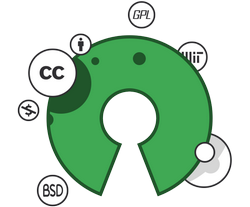Campaign for the reform of copyright in the digital age "Time to change copyright!"

Friends, we are all in one degree or another immersed in the issue of copyright, are under the influence of legislation in this area, complain about the imperfection of the existing picture of the relationship of the author, consumer and copyright holder, download content of varying degrees of licensing, post your own or someone else’s content, face with information locks, we see a tightening of state regulation and the desire of certain lobby structures to introduce more and more absurd legal norms over and over again.
But we do not see the positive results of the struggle that only one subject of relations in the field of copyright imposes on us - the copyright holder, the intermediary between the author and the consumer. Instead of acting as effective managers who establish convenient, high-quality, diverse and simple communications between the creator of the works and those who contemplate them, listen, use, the right holders (not all but the most visible and most active part of them) try to build its model based on prohibition, omission, blocking and harassment.
')
It seems that this approach is not constructive and has a negative impact not only on the objects and subjects of such persecution, but also on the authors and in general on the development of the Internet and economic ties in it.
The campaign “ Time to change copyright! ” , Including the goal, is to establish a dialogue between all participants of these relationships: authors, Internet users, rights holders, the government and representatives of the IT business.
Without a new social contract, legislative actions to take into account the interests of only one side of this process will be leveled out by civil denial, and de facto illegitimacy.
99% of Russian citizens cannot be called thieves and introduce appropriate legal norms.
It is necessary to think and analyze qualitatively why this is so that the overwhelming majority do not consider the existing state of affairs in copyright law to be a fair and adequate reflection of reality in our digital age.
Let's think together about how to get away from the prevailing absurdity to the consideration of mutual interests and compromise solutions.
But one thing is already possible for all parties to converge: the reform of copyright has matured.
Internet users do not want to live by the rules established in the Middle Ages, and right holders can not fit into the conditions of the digital world.
We put forward proposals for progressive copyright reform with the possibility for the community to widely discuss the concept of changing copyright laws in the digital age.
 Among our offers:
Among our offers:- transition to the public domain of the Soviet cultural heritage, as well as the results of intellectual activity created at the expense of state budget funds;
- reduction of terms of protection of copyright;
- decriminalization of non-commercial file sharing;
- legislative recognition of the concept of “fair use of works” (“fair use”);
- legislative consolidation of free licenses and their promotion;
- conduct an audit of the activities of societies for the collective management of copyright and more clearly define the scope of their activities;
- revision of the possibility of using DRM.
 The proposed Concept for the reform of copyright in the digital age has been put up for public discussion on the RosKomZakon portal.
The proposed Concept for the reform of copyright in the digital age has been put up for public discussion on the RosKomZakon portal.If you have something to offer, comment on, make a comment, or support the opinion of another participant in the discussion process, then specifically for convenience each item of the Concept is displayed in a separate discussion thread .
According to the results of the public discussion, the consolidated proposal on the reform of copyright will be sent to the European Commission, which is carrying out the reform of international copyright legislation, the State Duma of the Russian Federation, as well as relevant government bodies. It is very important not only to collect your opinions, but also to bring them to those who must make decisions.
This we will try to do. And present the results of our common actions.
And now we have prepared the result of the public discussion of the new version of the “anti-piracy” bill from the Ministry of Culture:
We have already submitted this document to the Ministry of Culture of the Russian Federation, which initiated the draft law, the Ministry of Communications of the Russian Federation, which has its own vision of solving the problem, as well as other representatives of the legislative and executive authorities, IT business, public organizations and laid out in public access for all interested persons.
This is all part of a copyright reform campaign that we want to make large-scale, meaningful and effective.
In our common interest.
Naturally, if you support it to one degree or another.

Source: https://habr.com/ru/post/211715/
All Articles